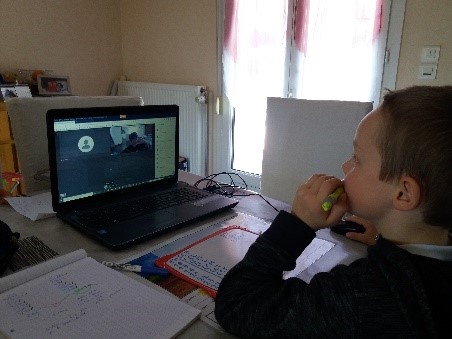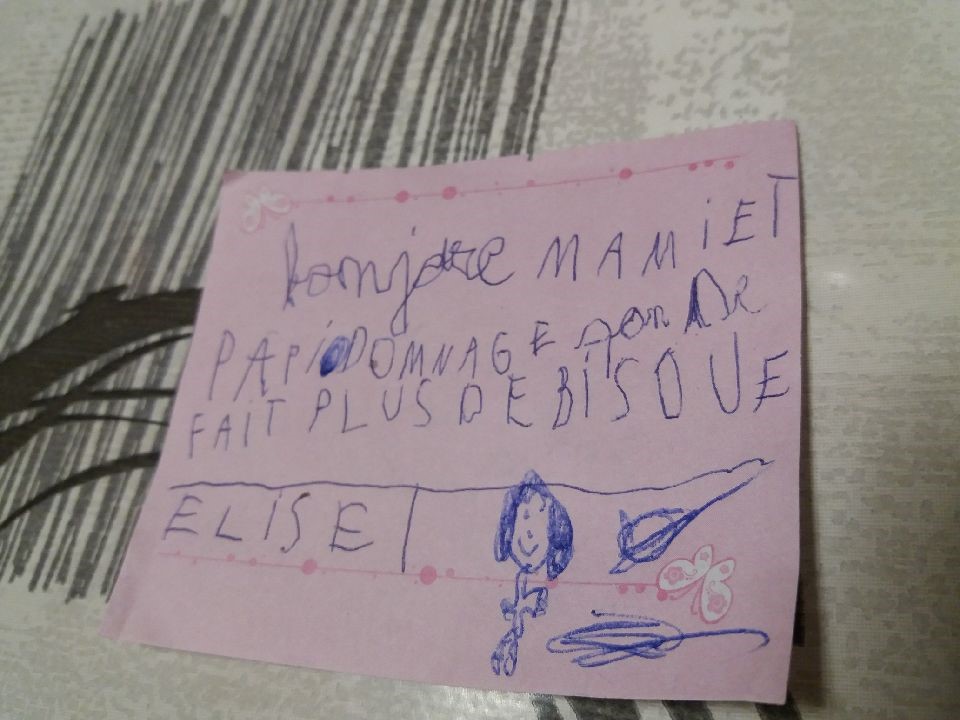
When we first heard about Coronavirus in January 2020, we thought it was something limited only to China and therefore far away from us. We didn't imagine that the virus would quickly spread throughout the world. Then, as the days went by, we discovered the development of the pandemic, becoming more and more invasive, and spreading to Europe and elsewhere.
At the beginning of March 2020, my wife felt the symptoms of the disease, and the virus also infected me. Fortunately for both of us, we did not get a severe form of the disease. We only had a low-grade fever, severe fatigue, loss of taste and smell, and for me, a persistent bad cough for over two months.
A member of our family was scheduled for a kidney transplant in February 2020. Because of the numerous hospitalizations for COVID, this operation was cancelled despite the high risks for the patient. We were all very concerned about the possibility of a rapid and even fatal deterioration of his kidney functions. To our great relief the transplant finally took place in July 2020.
We have friends who have experienced a severe form of COVID, hospitalized in intensive care, put in an artificial coma for several weeks, and then in rehabilitation for four to five months in a specialized hospital. Unfortunately they still have significant after-effects, especially losing the ability to walk normally. My wife and I consider ourselves to have been very lucky.
We lived the confinement with resignation, vigilance and a certain anxiety, limiting going out only for the strict necessities of life.
Since then, vaccination has arrived. But we cannot understand why people refuse this vaccination, thus taking risks for their health, and also endangering the health of those around them. This behavior jeopardizes the whole strategy for the eradication of this pandemic.
Nevertheless, we remain hopeful that reason will prevail and that in the coming months we will be able to return to (an almost) normal life.
Philippe Lebeau (Jumelages Lille)
In early 2020 when the government repatriated hundreds of French nationals from China and isolated them, I understood that we had to expect the worst!
And the 1st TOTAL lockdown followed ....
We lived through it, certainly with difficulty, but more easily than some, because we live in a house with a garden and in the countryside.
However, the anguish was present at every moment, for our relatives, our grandchildren, our friends, our elders, our neighbours ...
My children were sick, without any serious form of illness for my son, although he was obliged to go to work because of his job, without a mask -there was none available! - in spite of his partner being seriously ill and in isolation in an apartment.
The other relatives were on partial unemployment, then teleworking, which cut them off from any relationship. For some, this was very painful and they suffered from the forced isolation.
The worst was for the grandchildren who are at the age of reason and experienced the situation as a "punishment", no more school - except by video -,
 |
 |
no more friends, no possibility of going out, no more sports, no more grandma-papy and it was particularly difficult for my granddaughter. To avoid the anxiety of not seeing us, we set up different things:
- I took over my German classes that I taught for 10 years in elementary school and we worked and played by email. I invented games, rebus and crosswords in German for them.
- We also communicated by mail, making fun of the nasty virus, cards and drawings were left in each other's mailboxes, during the daily walk, ....
- And the telephone of course ....
We sometimes saw each other from a good distance, the little ones in the garden in front of the house, often in tears and me at the window ....
In 2020, because of this pandemic, many have lost their lives, have been or are still seriously affected.
The 2nd lockdown at the end of 2020/beginning of 2021 was easier, with a little more freedom. It has just ended and life is slowly returning to "normal". I continue, as well as my family, to wear the mask and respect the Health Department instructions.
Let's vaccinate ourselves, let's ensure others are vaccinated, let's respect each other and we will get out of this!
Lydie (jumelage Strasbourg Alsace)
March 16, 2020, the official announcement reaches our offices at the La Poste Group headquarters: Lockdown for all, except for a few sensitive departments. We have to go home and we will have to work remotely.
The social distancing rules are communicated, but there is a shortage of masks in France.
The telephone rings constantly. We have to organize the so-called essential tasks. Crisis meetings with the persons in charge of each region to take stock of the situation. Less than 1000 Post Offices on the whole territory can open with restricted services.
We manage to work with both professional and personal tools. The IT department is overwhelmed. They have to create secure spaces for employees working remotely. There are quite a few of us. We are learning to work with Teams. We have not received any training. Each of us brings our discovery of the functionalities of this tool. The days follow each other with this sound coming from elsewhere. We are in his company from 8:30 am to 7:30 pm practically non stop. Sometimes, even often, we have barely twenty minutes to have lunch. But we have to prepare it, heat it up and tidy up a bit. When we are in the office, we go to the company restaurant. We don't have to worry about preparing, cooking and washing up.
At the beginning of April comes the period of payment of social rights. This is a sensitive period when customers come in great numbers to the Post Offices to withdraw their monetary benefits. It is necessary to manage to open more offices while protecting the employees and the customers. The masks are coming. But we need the resources to serve the customers. How do you convince people to come to work when there are messages on all the media to only go out when strictly necessary: food buying and the possibility of walking for one hour within one km of your home?
In my neighborhood, I've never seen so many joggers running around the block. I can hear the birds chirping. The streets of Paris are deserted, as elsewhere. The population is adapting to the situation. I was far from imagining that I would be wearing a mask as soon as I stepped out of my door. In my mind, people only wear masks to protect themselves from the heavy pollution in megacities.
I never thought I would have to wait in line to do my shopping. I thought that this situation was reserved for countries with food supply problems.
And don't forget to fill out your exit permit. The authorization is for one hour per day....
Since we cannot go out, we work. We have faced the period of payment of the social benefits. We continue to organize ourselves and with each passing day the situation improves. At the beginning of May, the majority of the offices are open. The projects continue to progress despite the evolution of the Health situation. Teams have almost no secrets. But we still communicate through the computer screen and it has become the main object of my days.
I'm starting to go back to the office in person one day a week. I have a proper travel certificate. I have no problem finding a seat in the almost empty metro. The traffic in Paris is fluid.
It's time to end confinement. The summer vacations are near. The return to the office in person will be in September. Barely enough time to see colleagues in the office, not all of them because some of them have legitimately retired, to find a little social link, a new lockdown arrives at the end of October. We are ready and have the experience of what we have put in place during the first lockdown. The media starts to talk about vaccination. At the end of December, the first French woman, Mauricette, is vaccinated. There is hope of a return to normal life, but France must now, after the masks, manage the shortage of vaccines. It must be said that the French laboratories are not up to the task! And a part of the population has to be convinced to be vaccinated.
Ah France, country of freedom...and endless debates.
Joël Garnot (Jumelage Paris Poste)


